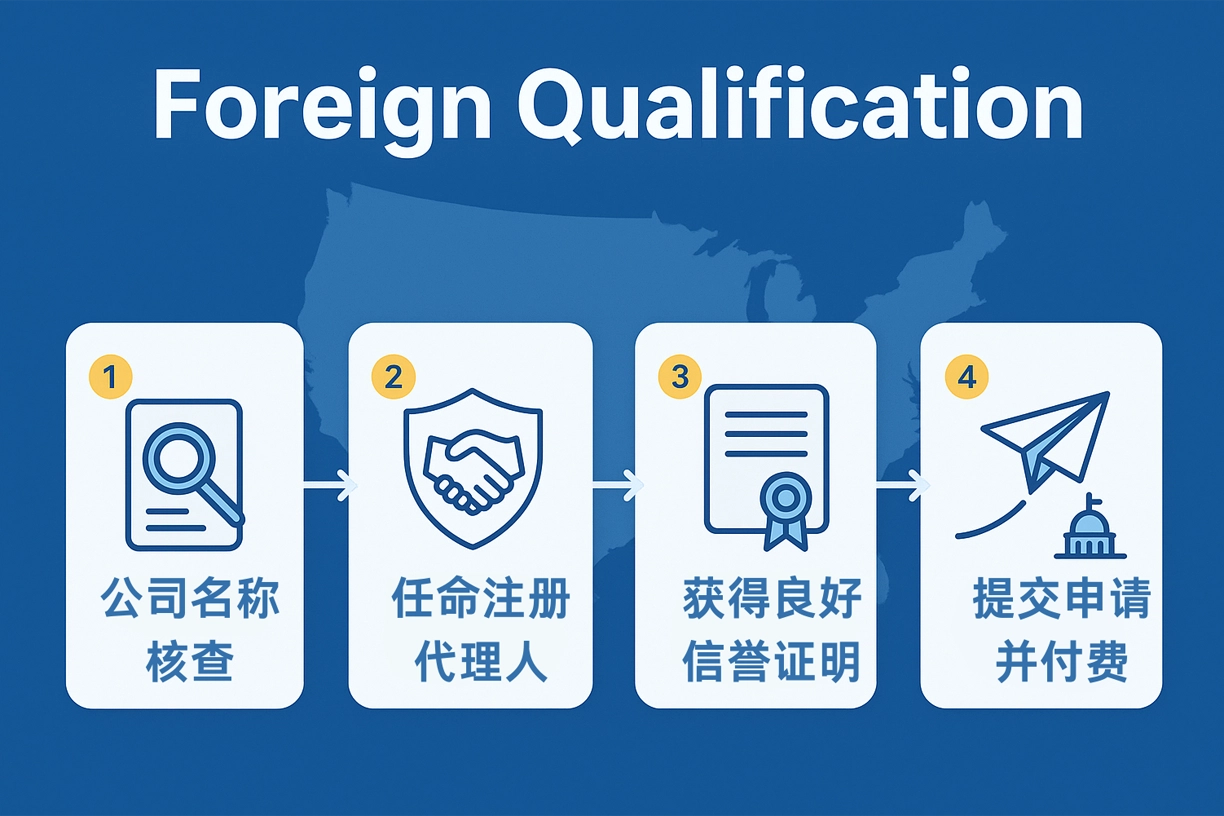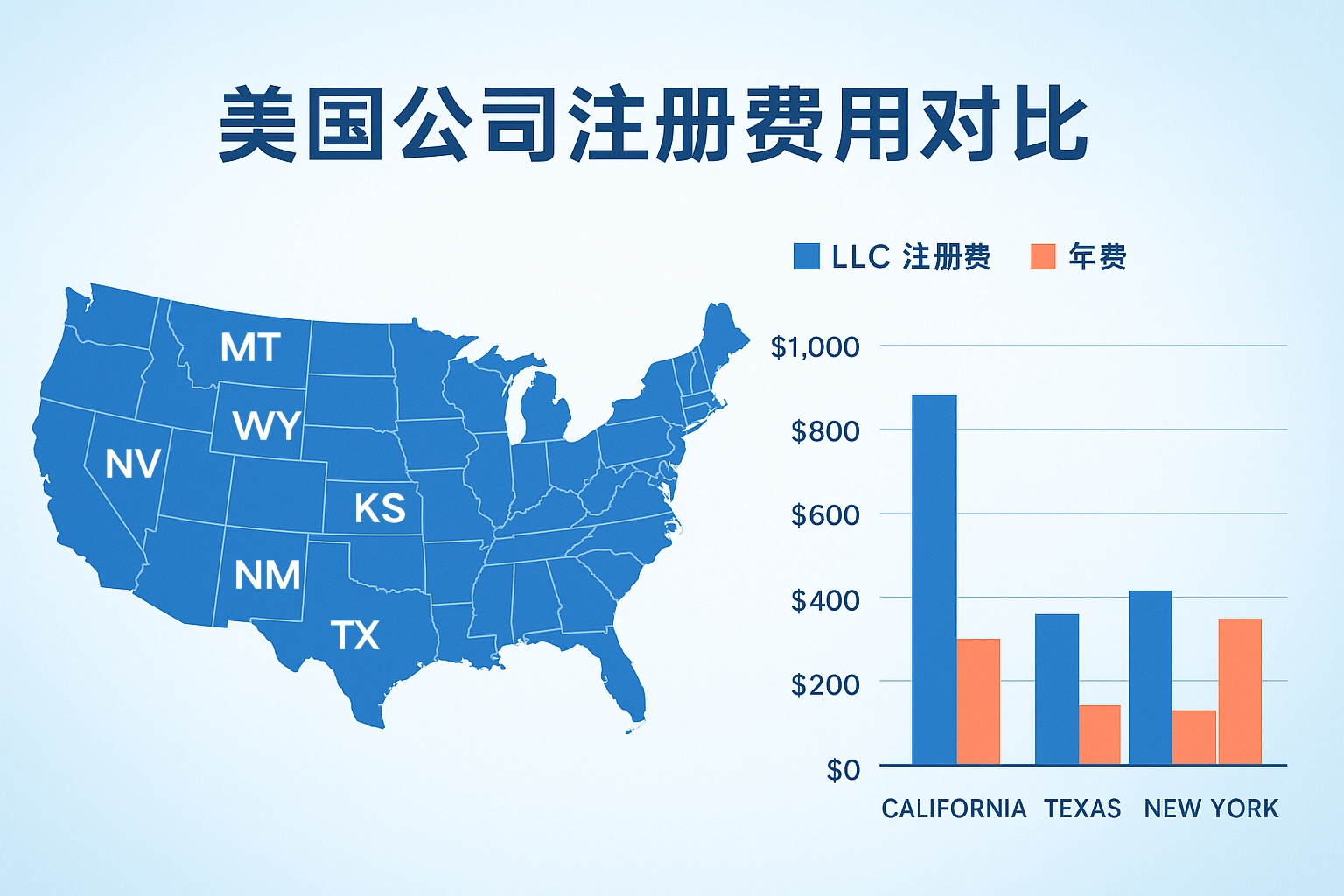US Multi-State Business: Does Your Company Need to Register in Another State?

When you register a US company, you typically incorporate in one state. As your business grows, you may want to expand into other states. This is where interstate business operations come into play. A common question arises: Do I need to register a new company in another state?Legally, this process is called Foreign Qualification.
If you formed an LLC or C-Corporation in Wyoming, but most of your business activities take place in California, you are required to file a Foreign Qualification in California. This is not creating a new company,it’s registering your existing company with the Secretary of State in the new state to gain legal authority to operate.
What is Foreign Qualification?
Foreign Qualification means your US company, originally registered in its home state, must file with another state government to obtain legal authority to operate there. Your entity is considered a domestic company in its incorporation state, but a foreign entity everywhere else.
How to Know If You Need Foreign Qualification?
You typically need to register if your activities in another state go beyond occasional or indirect transactions. Common triggers include:
Physical presence: Owning, leasing, or renting an office, warehouse, retail store, or any business location in another state.
Ongoing contracts or services: Regularly conducting business, not just one-time deals.
Sales tax nexus: E-commerce or retail companies meeting state thresholds for transactions or revenue.
Hiring employees: Employing W-2 workers in another state clearly establishes nexus.
Management location: If your CEO or board meetings are held in that state,or it is your primary business hub.
State-specific benefits: Applying for state licenses, government contracts, or permits often requires registration.
Cases that usually do not require Foreign Qualification include:
Purely online sales without physical presence.
Opening a bank account alone.
Occasional or temporary contracts.
Internal company matters like board meetings.
Passive real estate ownership,without development or rental management.
Hiring independent contractors instead of employees.
Foreign Qualification Filing Process
The process is similar to US company registration, but with additional documentation:
Name Availability Check:Ensure your company name is available in the new state. If not, you may need a DBA (doing business as).
Appoint a Registered Agent,Every state requires you to designate a registered agent to receive legal and tax documents.
Obtain a Certificate of Good Standing,Request this document from your home state to prove your company is active and compliant.
File Application,Submit a Foreign Qualification application with the Secretary of State, including company details and incorporation records.
Pay State Fees – Each state charges different application fees.
Maintain Ongoing Compliance – File annual reports, pay franchise taxes, and meet all compliance requirements just like in your home state.
Risks of Non-Compliance
Failing to complete Foreign Qualification can be costly:
Penalties and Back Fees,States may impose fines and retroactively charge unpaid fees or taxes.
Loss of Legal Standing,Your company may lose the right to sue in that state’s courts.
Loss of Liability Protection,LLC liability protection may be invalid, exposing personal assets to risk.
Registering a US company is just the beginning. Expanding into multiple states requires proper Foreign Qualification to remain compliant, protect your company, and avoid penalties. Since each state has its own rules, working with a professional US company registration service ensures efficiency and accuracy.
We provide nationwide services across all 50 states and DC, including US company formation, foreign qualification, tax filing for individuals and businesses, ITIN applications, bank account setup, trademark and copyright registration, annual reports, and company dissolution. With US China bilingual CPAs offering one-on-one free consultations, we help you grow your business with confidence.


+8618038173631


hi@easytaxs.com


StartBizUSA

Please scan WeChat QR code for professional service
STAY IN THE LOOP
Subscribe to our free newsletter.
For many entrepreneurs, registering a company in the US is a key step toward launching a new business chapter and entering the global market. However, one of the most practical and confusing questions is: How much startup capital is actually needed? The answer varies greatly,it depends on which state you choose to register in. Each
Registering a US company in 2025 is undoubtedly one of the top choices for entrepreneurs and business owners looking to expand overseas. The US market, with its massive consumer base, mature capital markets, flexible tax system, relatively simple company registration process, low maintenance costs, strong intellectual property protection, and transparent legal framework, continues to attract
Every year, over 30% of Chinese business owners get into trouble due to confusing US company annual report with US company tax filing, resulting in company dissolution, frozen cross-border e-commerce accounts,or fines. This article will break down the essential differences in plain language, helping you maintain compliance in your cross-border business. US Company Annual Report
When you plan to register a US company, one of the first and most confusing questions for many cross-border e-commerce entrepreneurs is: LLC or C Corp or S Corp? Choosing the wrong structure can lead to higher tax burdens and even affect your future compliance operations. Many business owners only discover during tax season that








